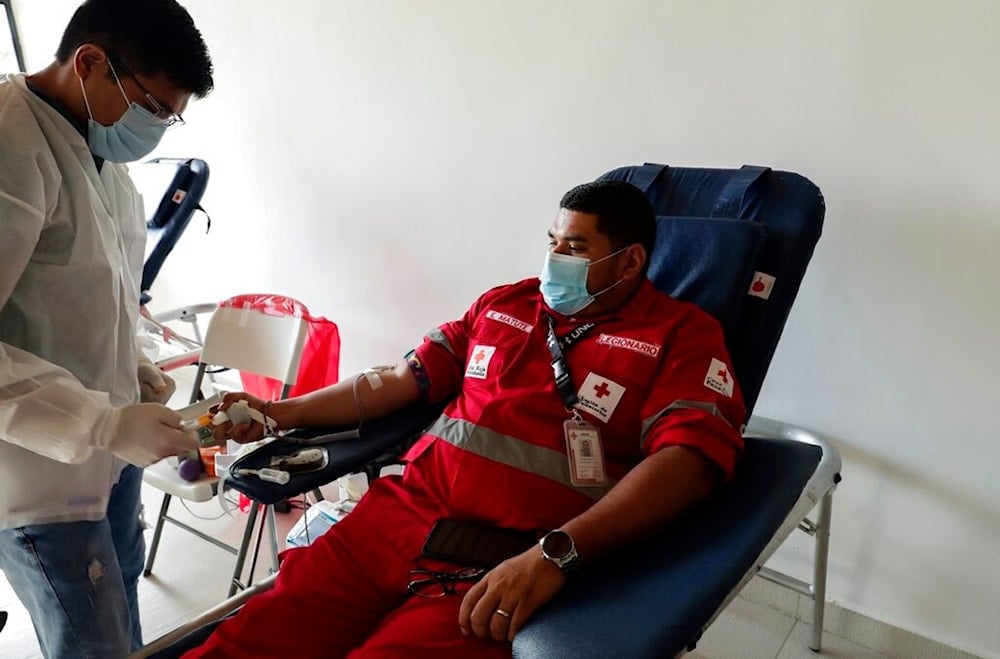France discovers new ‘Gwada negative’ blood type in rare case
A French woman from Guadeloupe is the only known person with a newly discovered blood group system, “Gwada negative,” recognized globally this June.
-

A Red Cross worker donates blood during a campaign to increase the number of blood donors, in Panama City, Friday, May 8, 2020 (AP)
French scientists have identified a completely new blood group system, marking only the 48th ever recognized worldwide. The rare discovery stems from a single patient, a 54-year-old French woman of Guadeloupean origin, who remains the only known carrier of this blood type, now officially named “Gwada negative.”
France’s national blood supply agency, the French Blood Establishment (EFS), made the announcement on Friday, revealing that the International Society of Blood Transfusion (ISBT) formally recognized the new group earlier this month in Milan.
The discovery dates back to 2011, when the woman, who resides in Paris, underwent routine preoperative testing. A medical team led by EFS biologist Thierry Peyrard detected an unidentified antibody that did not correspond with any known blood types at the time. However, technological limitations prevented further analysis until 2019, when high-throughput DNA sequencing allowed researchers to trace the anomaly to a rare genetic mutation.
“This woman is undoubtedly the only known case in the world,” Peyrard told AFP. “She is the only person in the world who is compatible with herself.”
Gwada negative expands horizons for rare blood groups
Researchers determined that the woman inherited this unique blood profile from both her parents, who each carried the mutated gene. Inspired by the patient’s Caribbean roots and aiming for a universally comprehensible label, scientists coined the term “Gwada negative,” a nod to Guadeloupe's local nickname.
The EFS hailed the find as a major stride in transfusion medicine, underlining that “discovering new blood groups means offering patients with rare blood types a better level of care.”
The organization emphasized that while the ABO system remains central to blood classification since its discovery over a century ago, modern genetic tools are accelerating the identification of novel groupings.
Peyrard and his team are now appealing for further genetic studies and blood screenings in the hope of identifying others who may share this rare blood group.
“This opens a new chapter in our understanding of human blood diversity,” said the EFS. “And it holds profound implications for the future of personalized medicine and transfusion safety.”

 2 Min Read
2 Min Read









